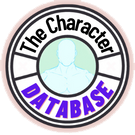Abstract Existence
Abstract Existence is the ability to embody an abstraction, such as a concept, thought, or information, and gain immortality through it. This power can provide various benefits, including significant control over the abstraction and its manifestations, immortality, and resistance to abilities that cannot target the abstraction.
Merely embodying a concept is insufficient to obtain this ability; an abstract must have feats or reliable statements proving that the concept they represent grants them immortality, regeneration, or control over the abstraction.
Note that the abstract nature of different characters can arise from different sources (rumors, concepts, possibilities, etc.), so being able to affect one subtype of a category does not mean a character can affect all types of abstraction.
Types of Abstract Existence
Type 1: Pure Abstraction These characters exist solely as abstractions, without a true physical form. Affecting them requires the ability to directly impact the abstraction itself, as any physical manifestations are merely avatars.
Type 2: Embodiment of an Abstraction These characters embody an abstraction and can be resurrected or regenerate indefinitely because of it. To permanently kill them, one must destroy the abstraction they embody, but they can still be affected without directly altering it.
Important Notes
The exact "type" of abstract existence should be specified, especially for conceptual abstractions. Clearly indicating the specific "type" of concept these characters embody or purely exist as is crucial.
For generalized formatting, use something like:
- "(Level of abstract existence (Type 1 or 2) - Type of abstract existence (thoughts, concepts, or information)"
For conceptual abstractions, add the "type of concept (Type 1, 2, or 3)" after the stated formatting above.
Limitations
Abstract entities often embody a concept, thought, or idea only up to a certain level of reality. For example, Eternity embodies time on a local, universal scale; if the universe is destroyed, so is he.
